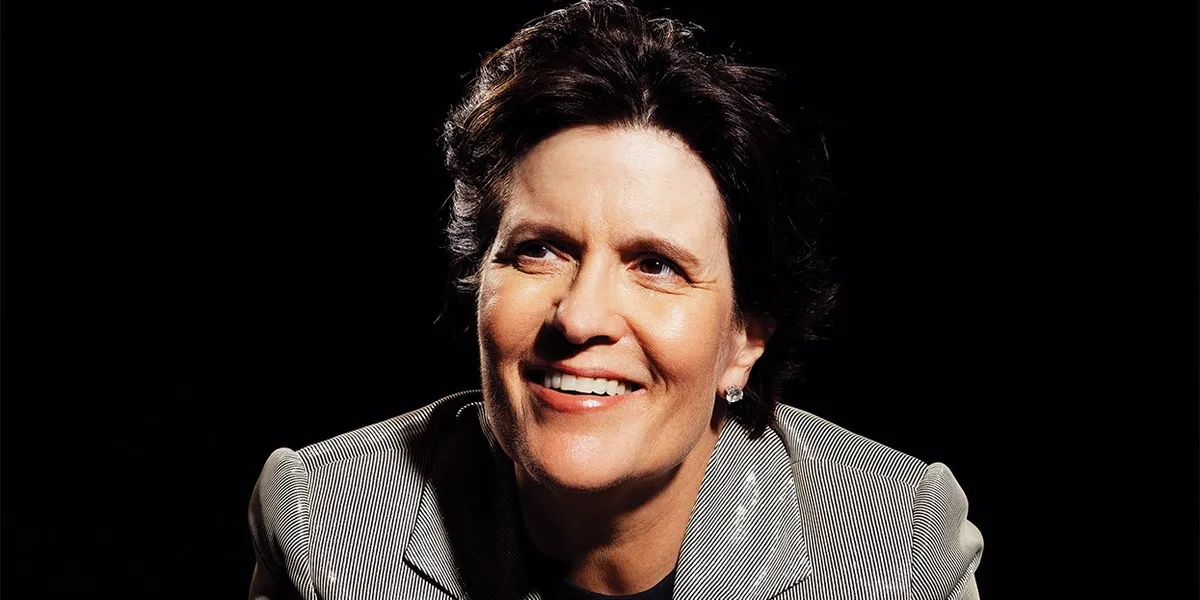Is Kara Swisher Tearing Down Tech Billionaires–Or Burnishing Their Legends?
Kara Swisher’s journalism career took off as Silicon Valley was becoming a coast-to-coast household metonym for the American tech industry in the mid-90s. (She recalls being the only Washington Post staffer interested in the newsroom’s freshly purchased cell phone.) While good timing aided her ascent to the top of tech journalism, her dogged reporting was the more important factor. But as Helen Lewis writes in her Atlantic review of Swisher’s new memoir, “Burn Book: A Tech Love Story,” she’s also come under fire for cozying up to the tech titans–Swisher and Elon Musk have a long, love-hate history–she’s meant to scrutinize.
That conflict makes the review, and book, a gripping read for journalists and media wonks. Simultaneously maintaining access to sources and holding them, and their industries, to account is a bedeviling highwire act. And the tightrope Swisher has walked for 30 years has helped bring her from bullishness on Silicon Valley to weariness of its greed and exploitation and the odd manchildren who typically steal the show. Some fun insider gossip–guests at a 2008 baby shower for Google cofounder Sergei Brin were encouraged to don infant garb, including pacifiers–adds to the appeal.
Hollywood is Losing the Battle for China
In 2013, seven of the top 10 grossing movies in China were Hollywood productions. That number inched up to 8 in 2014. Last year, just one American film cracked the top 10, which following a steady rise was dominated by domestic releases. The shift has little to do with increased Chinese cinematic output or quality, and a lot to do with the “Communist Party’s propaganda organs…making an impact,” an Economist analysis finds. The consequences are important, since “soft power” and cultural imperialism were critical to the outcome and aftermath of the Cold War. Xi Jinping is eager to keep such Western influence at bay, and has successfully boosted the fortunes of “homegrown cinema [that is shaping] how a generation of Chinese people view their country and its place in the world.”
Why Trump and Kennedy are chasing Jessica Reed Kraus
Max Tani’s evenhanded profile of Jessica Reed Kraus on Semafor captures much of what defines this current, bizarre moment in media. Reed Kraus had developed a modest following on social media with anodyne home design content when, in 2021, she took a detour to covering Britney Spears’ conservatorship trial. Her in-person accounts of the proceedings gained traction, and she went on to casually cover the high-profile court proceedings of Ghislaine Maxwell and Harvey Weinstein. Her big break arrived in the form of a 90-minute phone call from, and subsequent supportive coverage of, an admiring Johnny Depp as his tabloid circus of a judicial proceeding was getting underway.
Now, Reed Kraus has 1 million Instagram followers and 300,000 Substack subscribers, making hers the number one newsletter on the latter platform’s culture section. Reed Kraus’ knack for “recreating the grocery checkout line magazine mix for Instagram” caught the notice of politicians including Tulsi Gabbard, Robert F. Kennedy Jr. and Donald Trump, at whose campaign events she’s become a fixture. Reed Kraus is not an especially politically-minded person, and has become a right-wing darling despite her support of abortion rights. Her success story is a prominent example of major political campaigns wooing niche influencers at a moment of mainstream media fragmentation. As one media outlet after another shutters or sheds staff, an increasingly important voice like Reed Kraus doesn’t care if you take her seriously as a journalist, and politely suggests her detractors find their news and analysis at Politico or the Times.

